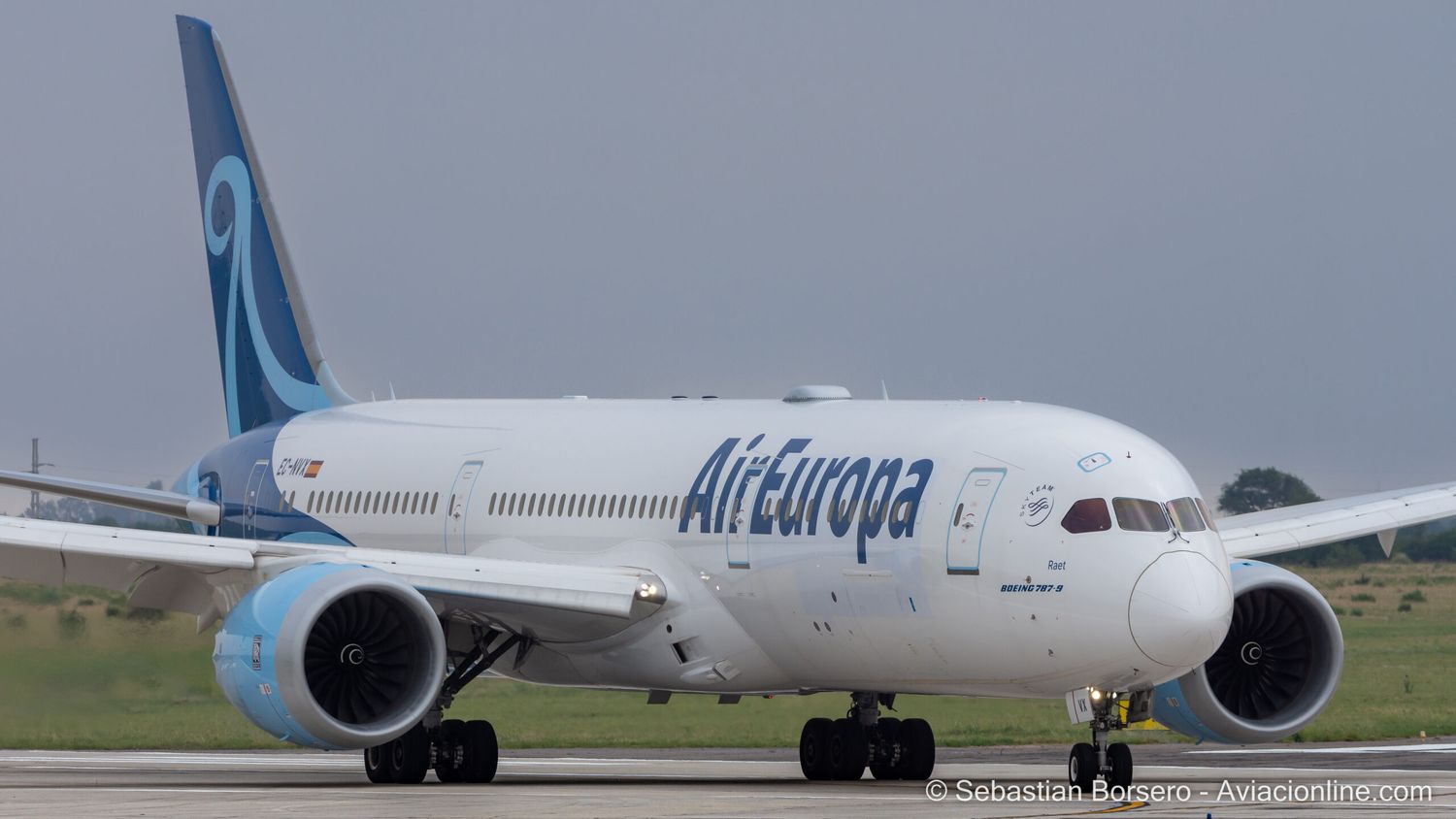Air Europa has been implementing OptiClimb technology, developed by SITA, since last summer to reduce fuel consumption during the climb phase of its flights. According to the airline, this tool, which utilizes artificial intelligence, enables savings of up to 3,000 tons of fuel per year and prevents the emission of 10,100 tons of CO2 annually.
OptiClimb provides personalized recommendations to crews on the optimal speed during the climb phase, based on historical aircraft data, operational flight plans, and weather forecasts, including wind conditions. These recommendations are sent to pilots during flight preparation and are applied to both Air Europa and Air Europa Express’s Boeing 737 and Boeing 787 Dreamliner fleets.
According to the company, during September, the 737 fleet saved 100 tons of fuel and reduced CO2 emissions by 312 tons, while the Boeing 787 achieved savings of 144 tons of fuel and 451 tons of emissions. These results were obtained after analyzing data from over 5,000 flights, with a recommendation application rate close to 80%.
The use of OptiClimb is part of Air Europa’s Flight 2030 project, which includes nearly 50 initiatives aimed at improving sustainability in environmental, economic, social, and governance areas. In addition to this technology, the airline has also begun implementing protocols such as SETI (Single Engine Taxi In) and SETO (Single Engine Taxi Out), which involve performing taxiing maneuvers with a single engine, reducing fuel consumption during these phases.
According to the company, these measures aim to improve operational efficiency and contribute to global efforts to decarbonize the aviation sector.


Comentarios
Para comentar, debés estar registrado
Por favor, iniciá sesión